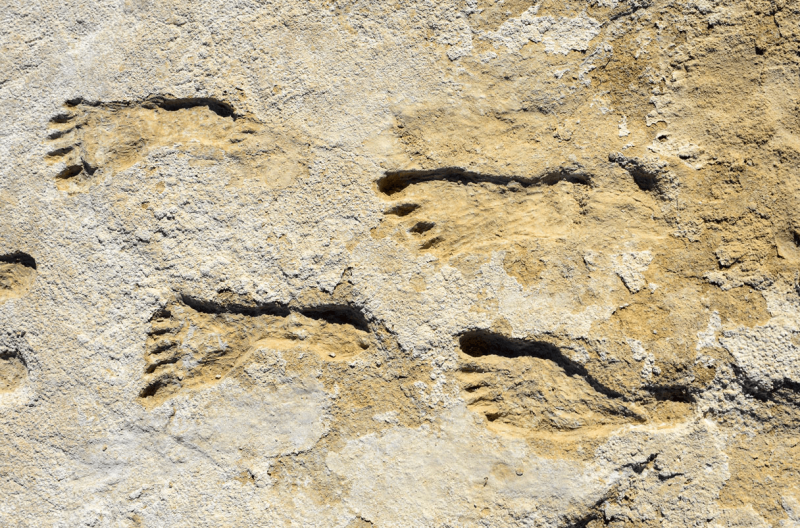Fossilized ancient footprints found at White Sands National Park humanize them, revealing the actions of their lives in ways that static bones and stone tools cannot.
Footprints can’t tell us who these prehistoric humans were. Yet a new study suggests something very surprising about this group. They were living in what’s now New Mexico likely during the Ice Age some 23,000 years ago—thousands of years earlier than the ancestors of modern Native Americans are generally believed to have arrived on the continent.
One set of prints appears to have been made by a woman and a toddler who intermittently walked on its own and then was picked up and carried. At some places the child’s little prints disappear even as the woman’s broaden in the mud under the burden of the youngster’s extra weight.
Other tracks tell the story of a group of ancient hunters apparently stalking a giant sloth. Their prints follow the animal’s prints and at times appear inside the sloth’s own, as though they stepped in its tracks as they trailed it. There is no evidence to tell us how either humans or the sloth ultimately fared at the end of the hunt.































